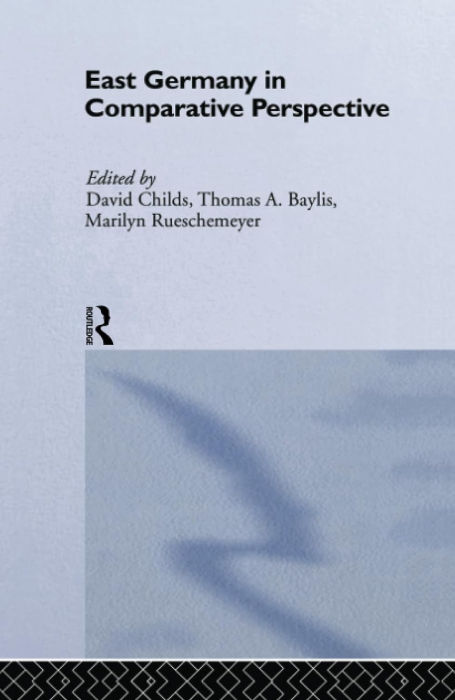Books
Thomas A. Baylis, David Childs, Erwin L. Collier, and Marilyn Rueschemeyer
East Germany in Comparative Perspective
How did East Germany’s political, economic, and social systems compare to those of its neighbors and fellow socialist states? East Germany in Comparative Perspective offers a scholarly, readable analysis of the German Democratic Republic (GDR) by placing it side-by-side with other Eastern Bloc countries during a period of profound change.
This volume provides a comprehensive examination of key aspects of East German society—including political leadership, the military, the church, gender relations, economic planning, and foreign policy—through a comparative lens. The book’s ten chapters, written by leading scholars, address topics such as the challenges faced by the ruling Socialist Unity Party (SED) in the era of Ostpolitik and Glasnost, leadership structures in Hungary and the GDR, the role of social and comrades courts, and the comparative experiences of women in the GDR and Hungary. Other chapters analyze consumer market disequilibria across several Eastern European countries, compare economic planning in the GDR and the Soviet Union, and explore the GDR’s foreign economic and political relations, including its engagement with Southern Africa.
By situating East Germany’s experiences within the broader context of Eastern Europe and the Soviet sphere, the book highlights both unique features of the GDR and the common challenges faced by socialist states. The collection is praised for its high scholarly quality and its utility for students and teachers of East European and comparative communist politics.
East Germany in Comparative Perspective stands out for its multidimensional approach, offering critical insights into how the GDR’s institutions, policies, and social dynamics measured up against those of its peers. By combining in-depth case studies with comparative analysis, the book remains a valuable resource for understanding the complexities of East German society and its place in the late socialist world.

